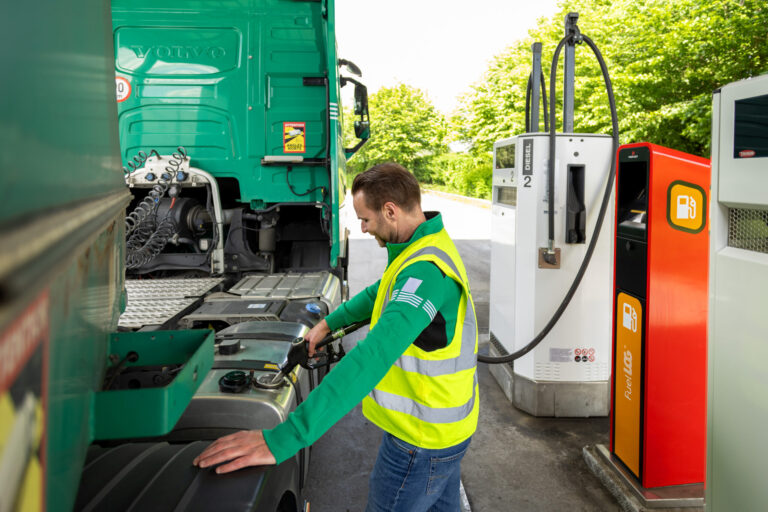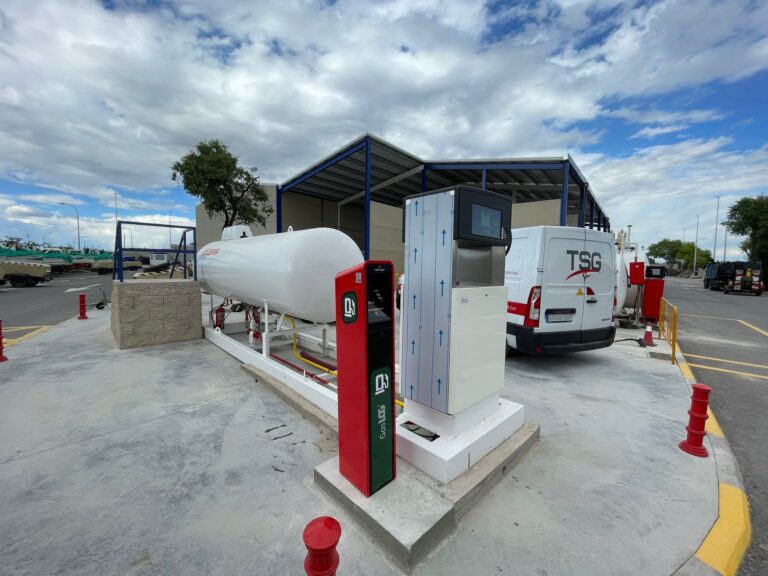Effective fleet fuel management is a critical component across multiple industries, playing a pivotal role in ensuring efficient operations and logistics. In today’s fast-changing tech landscape, emerging advancements are transforming the way UK fleets operate.
Managing fuel effectively poses a major challenge that affects operational costs, sustainability, and overall fleet efficiency. Fuel expenditure is a principal concern for fleet operation managers, especially in light of the soaring energy prices. Additionally, various hidden factors contribute to fuel costs for businesses, including theft, poor driving habits, short deliveries, fluctuating fuel prices and changing transport regulations, among others.
Fuel management isn’t a new concept; fleet managers have been tracking fuel usage for years, employing a range of methods from traditional pen and paper to cutting-edge technology. However, some of the earliest techniques often led to data inconsistencies, resulting in confusion and wasting time on reconciliation reports.
In the rapidly evolving world of commercial fleets, there is no room for mistakes, as precise data is essential for effective fuel management and operational profitability.
In 2024, the industry is set to see a rise in the adoption of advanced tools aimed at improving fuel management efficiency. These tools encompass systems that monitor and control fuel usage across the fleet. Operators can gain an understanding of their fuelling costs, by viewing a detailed breakdown of fuel stock consumption by driver, vehicle and site.
These solutions enhance fleet visibility and pinpoint inefficiencies, such as fuel expenditure and utilisation. By acting on these valuable insights, operators can potentially save up to 25% on fuel costs.

A Broader Perspective
Fuel management is just one aspect of a fleet operator’s responsibilities; the role also involves overseeing all equipment on site. Therefore, having a more integrated solution would certainly be beneficial and offer a competitive advantage.
As the world progresses toward a more sustainable future, many fleets are beginning to transition to greener, cleaner energy sources and require a management system that can support this crucial shift.
LOGmaster from TSG UK
A single, user-friendly application with a unified dashboard allows for easy monitoring and control of all forecourt equipment. Users need only a unique identification tag to access any on-site equipment, including energy dispensers, electric vehicle (EV) charging stations and vehicle wash facilities.
LOGmaster is compatible with any brand or model of equipment on-site, accommodating both traditional fossil fuels and emerging energy sources like gas, hydrogen and electricity, thus facilitating future growth and innovation. This versatility allows fleets to transition to greener options without needing a complete system overhaul.
Site operators have the flexibility to store data either on their own network or in the cloud, without incurring storage fees, and can switch between options at any time. In the event of a network outage, LOGmaster’s replication process ensures that operations continue seamlessly across all remaining sites until connectivity is restored, preventing any data loss.
LOGmaster features a stylish terminal equipped with an advanced touchscreen display, enabling smooth and quick customer interactions. Its modern design is visually appealing, and its compact size makes it suitable for operations of any scale. Both the standalone model and the wall-mounted version are constructed with an anti-corrosion coating on every panel, ensuring durability even in the toughest environments.

FuelLOG
FuelLOG consolidates real-time data from storage tanks, dispensers and automatic tank gauges (ATMs), allowing fleet managers to monitor and manage fuel and AdBlue consumption effectively. Operators can analyse their fuelling expenses through a comprehensive breakdown of fuel usage by driver, vehicle and location. The system also identifies potential issues, such as unexpected drops in fuel levels and questionable transactions. This capability to track fuel movement enhances managerial efficiency and can lead to significant cost savings.

GasLOG
GasLOG ensures the safe dispensing of compressed natural gas (CNG), liquefied natural gas (LNG) or hydrogen, even during overnight fuelling. Operators can set specific parameters for each gas type, such as maximum flow rates and dispensing quantities, tailored to the characteristics of the energy being used. The system continuously tracks gas levels, flow rates and dispensing activities in real time. This guarantees that operators have up-to-date information on availability and usage. Its advanced features, such as quantity controls and low flow rate deactivation, promote reliable and secure operations.

ChargeLOG
For fully electric fleets, ChargeLOG connects with various EV charger brands, authenticates usage and monitors energy consumption. Furthermore, ChargeLOG allows operators to set permissions for different users, enabling them to control who can access specific chargers based on their roles or requirements. Once a user attempts to connect to a charger, ChargeLOG verifies their credentials in real time. This validates that only authorised personnel can access the charging facilities.

WashLOG
Companies with car, truck or bus wash facilities can benefit from WashLOG, which manages the flow of vehicles through the wash, ensuring efficient processing and minimising wait times. The system allows users to customise and control various wash programs, tailoring them to specific vehicle types or cleaning requirements. Additionally, WashLOG generates automated reports that provide insights into wash usage, performance metrics and operational efficiency, helping fleet managers make informed decisions.

LubLOG
A robust system designed to monitor and manage a variety of vehicle fluids, extending beyond conventional fuel or gas management. It offers a centralised platform for overseeing liquids such as brake fluid, coolant/antifreeze, windshield washer fluid and hydraulic lubricants.
Author: Cheryl Ashton


